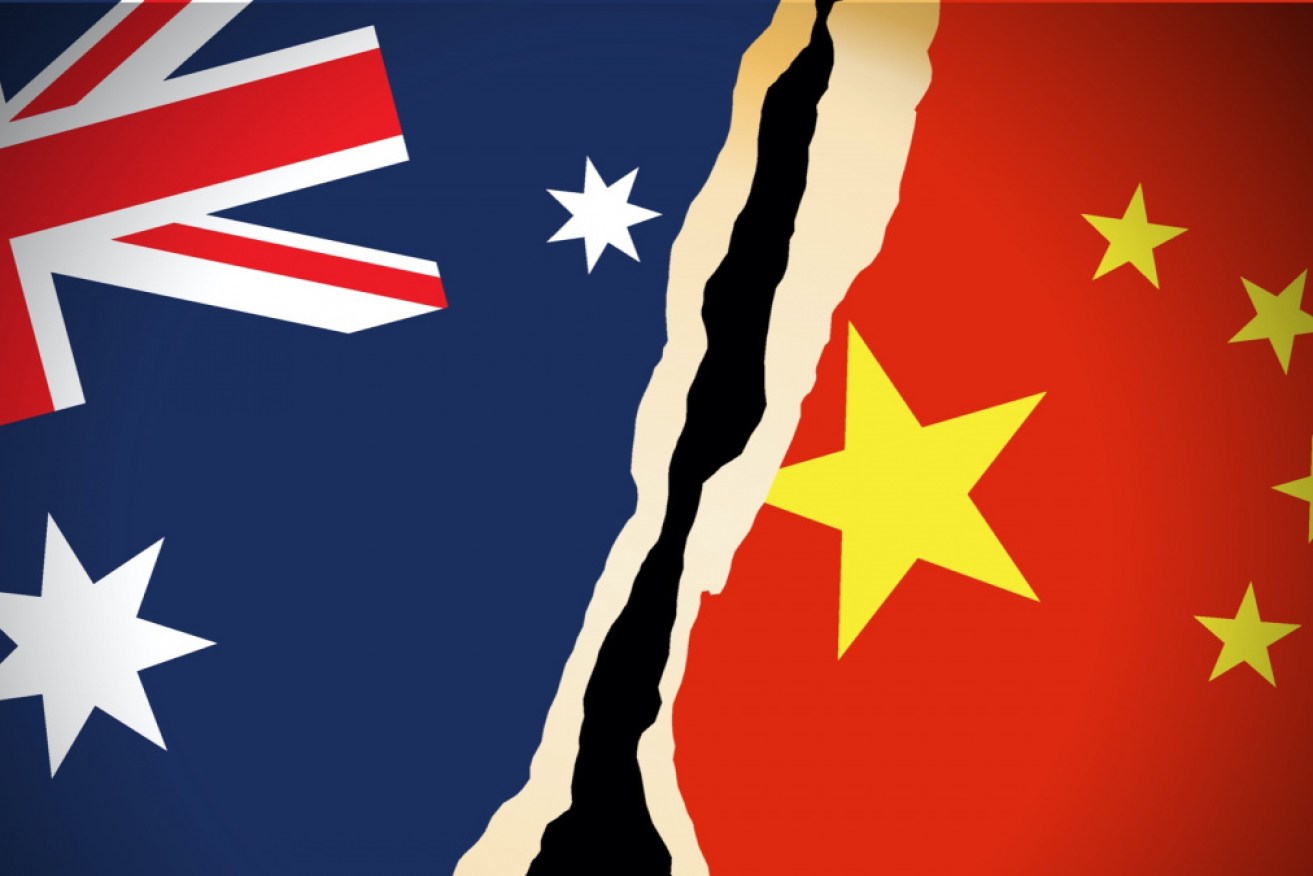Respect and fairness: What’s needed to repair Australia’s relationship with China

Trade disputes: Australia and China Photo: Getty
On August 26, China’s Deputy Chief of Mission in Australia Wang Xining addressed the National Press Club in Canberra.
His speech was remarkable for its measured approach to how the China-Australia relationship could be restored to something more like normality, for its focus on the ‘high ground’ of bilateral diplomacy, and for its ‘let sleeping dogs lie’ approach to the various irritants that have paralysed the relationship.
It was a thoughtful contribution to the conversation that Australia and China need to have. It was also a clever speech, rehearsing the history of the bilateral relationship, especially from Whitlam to Howard, reviewing the remarkable growth in the economic relationship (to almost a quarter of a trillion dollars over two decades), and setting out a few markers to guide a pathway out of the current mess.

Mr Wang described the Australia-China rift as a tiff between a married couple. Photo: AAP
Mr Wang offered four principles to promote the partnership: respect, goodwill, fairness and vision. He explicitly accepted that Australia and China were very different entities, acceptance of difference
being a natural outcome of goodwill.
Mr Wang also sketched out China’s expanding global engagement through international institutions, and China’s support for the UN Charter. Given Australia’s reliance on an international rules-based order for its own prosperity and security, one might assume that the Australian government would welcome Mr Wang’s support for “an international system that safeguards and advocates multilateralism, free trade, rule of law and global governance”.
Mr Wang called the shots as he saw them. He went to some pains to explain how China sees capitalism, democracy and socialism and the relationship between them – particularly when they mean so many
different things.
The Nordic countries espouse socialism, yet the term is practically an obscenity in the US. China claims to be democratic, as does Singapore, and Australia for that matter.
Mr Wang’s set of guidelines for the Australia-China relationship did not win much support from the press gallery. Having lunched on beef, barley and red wine (don’t we all just love an undergraduate prank), they were much more interested in digging over the current problems. There was particular concern that Australia was being ‘singled out’ by China in a way that the Europeans and North Americans were not.
Tariffs on barley, beef and wine, the inability of the Australian Trade Minister to talk to his counterpart, Confucius Institutes, foreign interference, espionage and theft of IP resulting from research agreements with universities – the symptoms of problems in the relationship – swamped any consideration of what the cure might look like. Mr Wang and the media talked past each other.
Yet Mr Wang was able to make one constructive offer. While he claimed to be unaware of what efforts the Australian government had made to contact Chinese ministers through the Embassy in Beijing, he did offer his embassy’s good offices in getting Ministers talking to each other.
While anti-Chinese sentiment continues to characterise the approach of some Australian commentators, and maybe some politicians, Australia and China evidently need to clear the air if common interests in prosperity and security are to be realised.
Mr Wang recommended diplomacy and put a more moderate Chinese approach on the table.

Foreign Minister Marise Payne has been silent on the economic and strategic relationship with China. Photo: Getty
Never one to miss a chance to poke the panda and take a swipe at the Victorian Premier – this time simultaneously – Prime Minister Morrison followed up with the threat of omnibus Commonwealth legislation to vet agreements reached between Chinese entities and state and local governments and public universities. The private sector can continue as normal.
When the Commonwealth already has constitutional and legal powers to control international relations and foreign investment, this latest resort to broadly based legislation looks like over-reach. It also raises real problems of sovereign risk.
Meanwhile the Foreign Minister remains silent on one of Australia’s most important economic and strategic relationships. If she can write off two and a half weeks on a symbolic visit to Washington, let’s hope that she can capitalise on the opportunity that Wang Xining has offered and steer the relationship into less turbulent waters.
Allan Behm is the head of international & security affairs at independent think-tank the Australia Institute. You can follow him on Twitter at @mirandaprorsus








